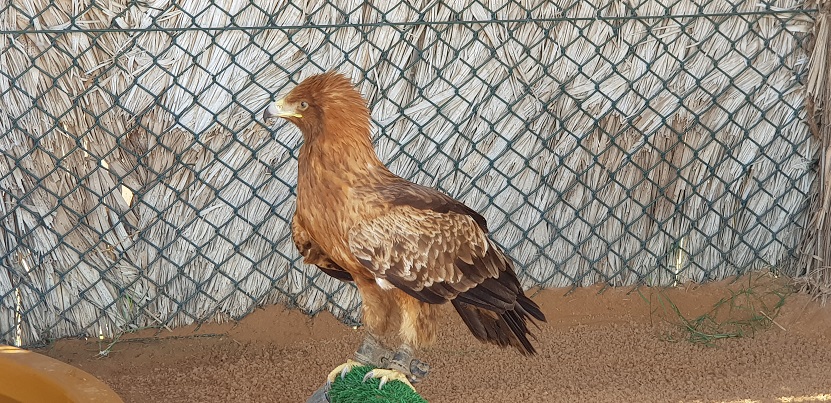Sharjah, one of the seven emirates that comprise the United Arab Emirates, is making immense efforts towards the conservation of the fragile ecosystem of this dry, desert dominated region. Remarkable work is going on in this emirate, to the extent that a whole mangrove forest has been brought back to life in the Khor Kalba region. Once a public land used as a popular retreat from the city of Kalba, Khor Kalba has been incorporated into the Protected Areas network and has been restored gradually to its natural state with its wildlife and mangrove forests. The Khor Kalba Mangrove Centre is both an educational experience and a sombre reminder of how man is destroying nature, especially when one sees the plastic caps, polythene strips and other such garbage recovered from the stomachs of fish. The centre also has mammoth aquariums where purple sea urchins—scientific name, diadema setosum—crabs, sea cucumbers, starfish and various types of fish that are common to the region can be seen.

On the way to Kalba, in the Hajar mountains is the Al Hefaiyah Mountain Conservation Centre, which is a nature reserve with over 30 species of wildlife belonging to the region’s mountains, including the Arabian Tahr, which is an endangered mountain goat, the Arabian leopard and Arabian caracal (wild cat). Huge glass-fronted landscaped enclosures exhibit these animals and if one is lucky one can spot a leopard, a couple of Arabian wolves, or a desert eagle owl peering out of their hideouts. The protected area is designated as a Ramsar site, which makes Al Hefaiyah a wetland of international importance. The Ramsar Convention on Wetlands of International Importance is an international treaty for the conservation of wetlands.
Celebrating the rich biodiversity of the mountains, the Al Hefaiyah centre also has live scorpions, snakes, hedgehogs and fish among other exhibits.

It is fascinating to see how all the animals, reptiles and fish at the centre have been graded according to the International Union for Conservation of Nature (IUCN) Red List of Threatened Species, which measures the conservation status of plants and animals, with some of these grades being, “extinct”, “critically endangered”, “endangered”, “vulnerable”, “near threatened”, etc. Around 1/3 of the animals at the centre come under “critically endangered”, “endangered” or “vulnerable” categories. Three of the species are already extinct locally, including the Arabian leopard, Arabian wolf, and striped hyena. But all of them are there at the centre.

The centre also offers detailed information on the different animals under its roof. For instance, the Arabian Tahr (goat) has rectangular pupils and hence a 340-degree vision; or that the Arabian wolf can travel 60 km in one night.
It’s an amazing place to visit also to see how beautifully information is being disseminated to the visitors. They have a shop as well where one can pick up mementoes.
In fact, this focus on conservation is also seen at the Kalba Bird of Prey Centre in the city of Kalba. There too the birds of prey have been graded according to the IUCN Red List. It has a wide variety of vultures and eagles—the Egyptian vulture, Griffon vulture, lappet-faced vulture, golden eagle, greater spotted eagle, etc.
Overall, it is heartening to see the emphasis being given on nature and the environment and the work that is going on to spread awareness about how to lessen the abuse that humans inflict on planet earth.
Disclaimer: The visit to Sharjah was on invitation from Sharjah Tourism and Commerce Development Authority (SCTDA), #VisitSharjah

